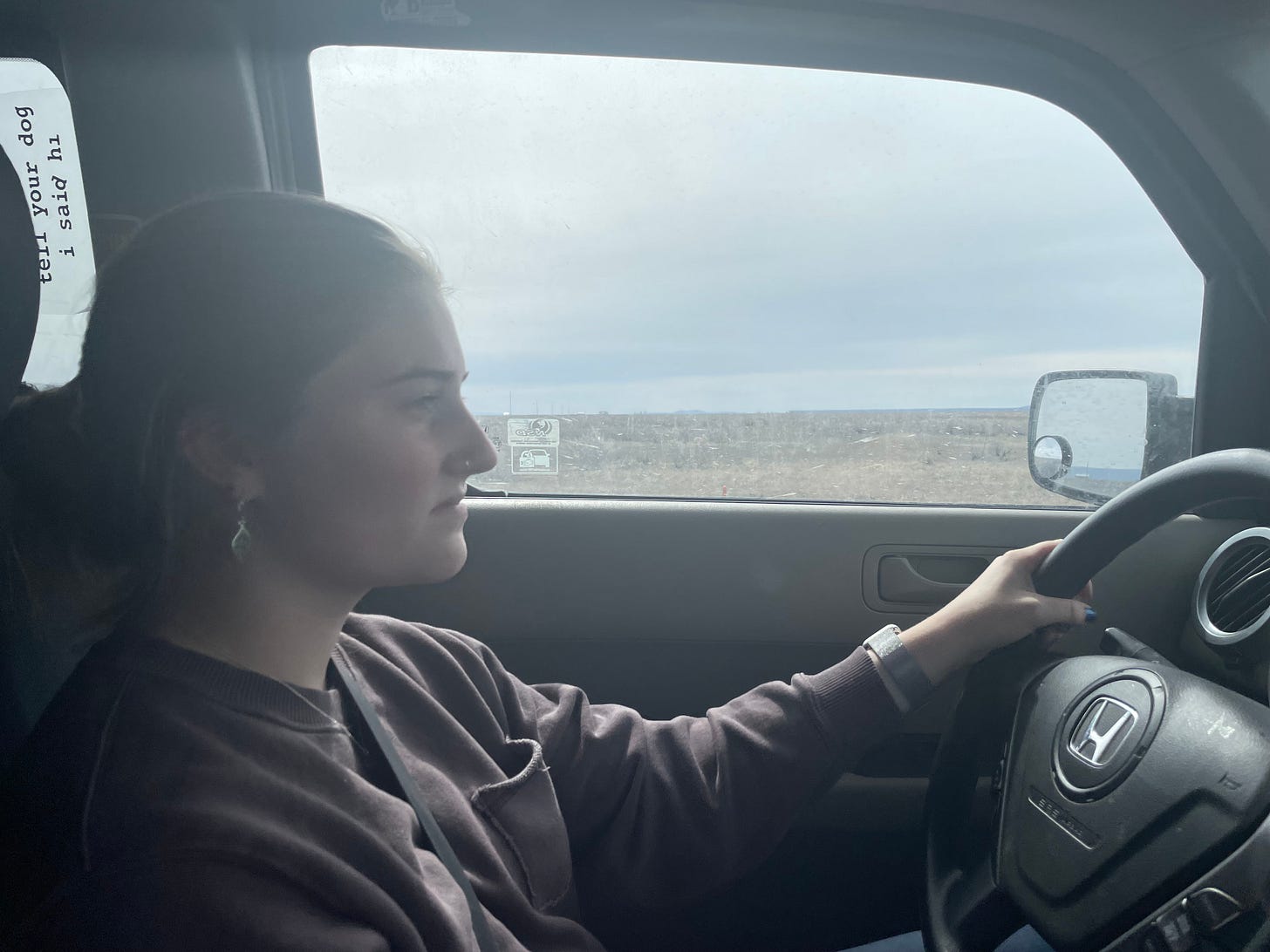Dear Eugene
Notes on visiting an ex's hometown a year after the breakup; or, all the things I wanted to tell him that I couldn't.
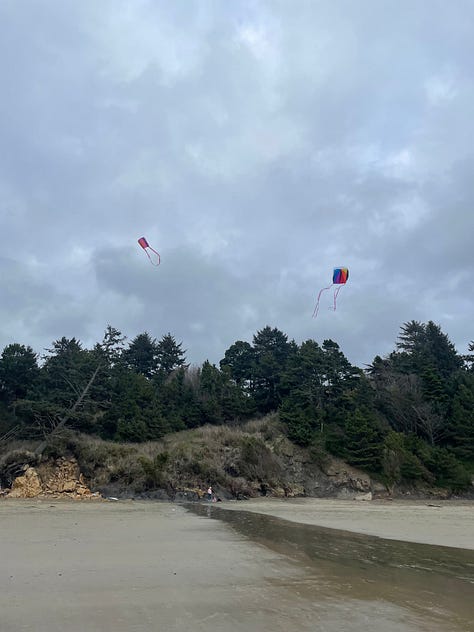
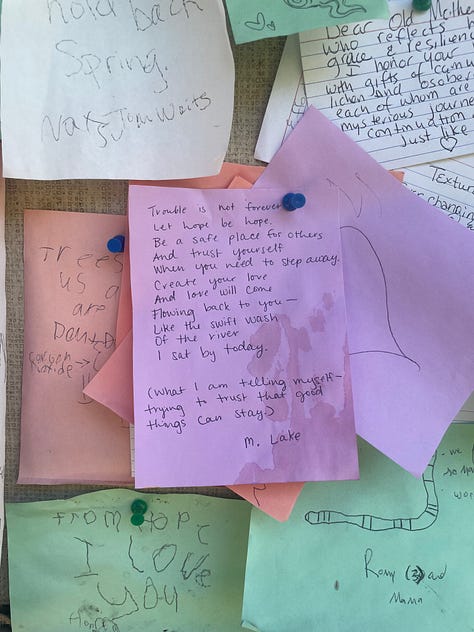
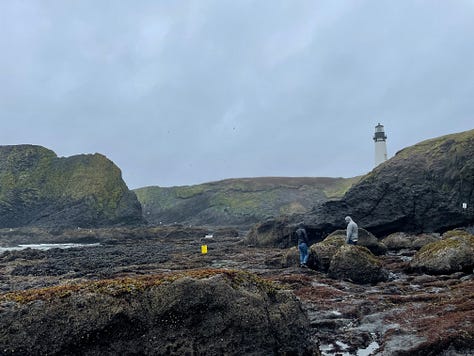
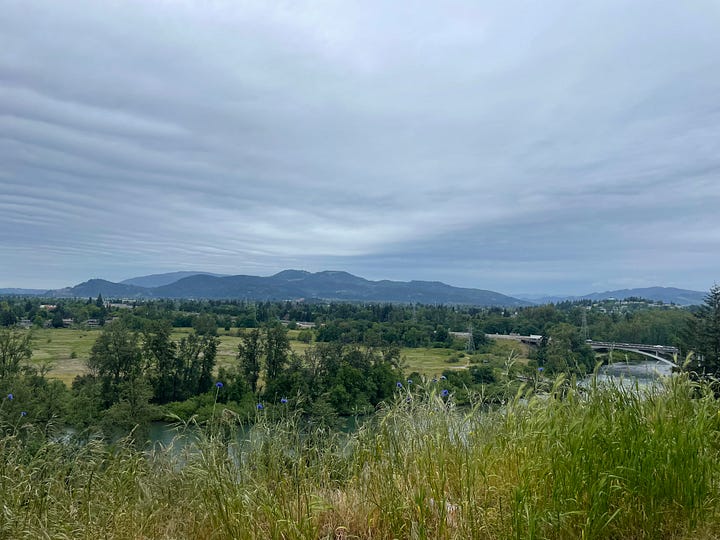
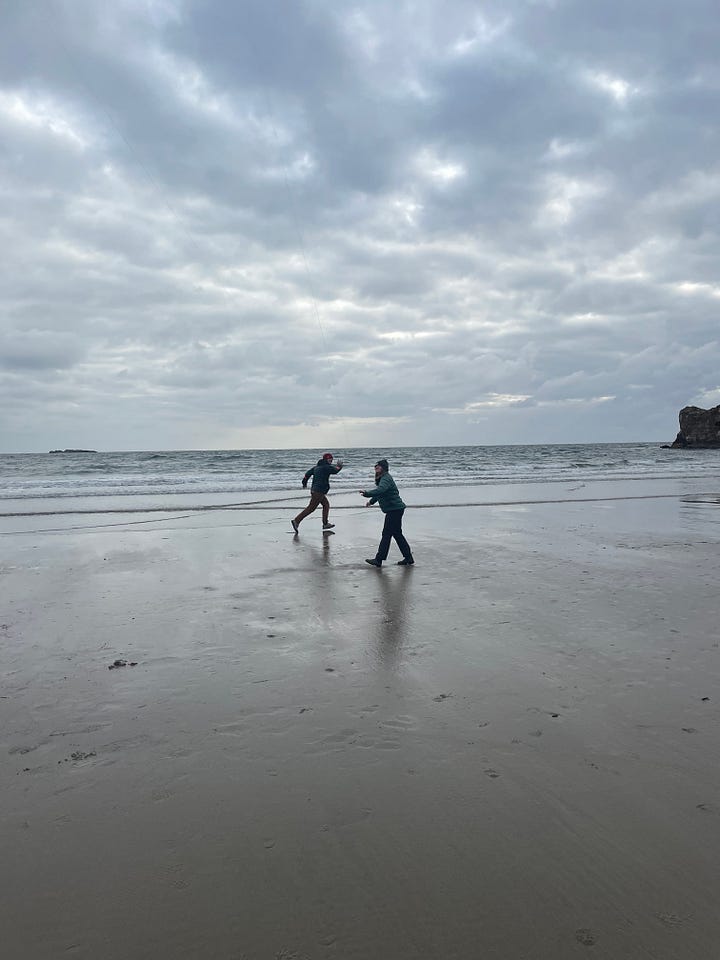
Dear Eugene,
In one of my classes during junior fall semester, while you were away on your adventure abroad, we talked a lot about nostalgia. According to Professor Richman, the etymology tells us that nostalgia is a “painful return.” When I planned to visit your hometown for a few days following the end of our junior year, I imagined that’s how I would feel: trudging through the smelly swamps of memory with achy muscles. I figured it would be somewhat hurtful in the wake of all you meant to me and all the ways you let me down, but I hoped it would be worthwhile. I loved your hometown so much I visited it during both the spring breaks we shared, freshman and sophomore years. Driving to the state with Mira, I thought the reason I wanted to return was to see if I could handle it. In my mind, your hometown was the set of a fairytale turned psychological thriller where the protagonist is left at the end clutching her head and crying out, “How could he do this to me?” This return was a test of whether the horror had faded, to see if one day I could make this place my own.
Our first year visiting, we drove your Honda and stopped over for a night in Brigham City. Mira and I, saving money on gas in her Prius, stopped in Salt Lake City to stay with her second cousin Cory. She who was so kind and generous that I wished I could stay there forever. Even now, I taste honey thinking of that house with its many windows, the teenage daughters whose parents checked after them sweetly, and the vast and wild garden with two cats whispering through. Utah is only vaguely haunted, more by my childhood visits to Arches than our stay at the KOA.
As Mira and I drove through your state, I looked around for signals that I’d been on these roads before. We saw the town you told me had burned down, still being rebuilt. I finally told Mira my secret from that first year at your mom’s house – the thing I did to break your trust that I never admitted to you – about when I discovered that you didn’t want me to be there with you. Mira let me speak my part, spitting up guilt and what remains of my anger, and then she said: “Do you think you can forgive yourself for that? Because, yes, you did break some trust, but you also felt unsafe. You were trying to protect yourself.” I told her I couldn’t keep talking about it or I would cry, but that I’d give it some thought, and we kept driving.
As we entered your hometown, I felt a twinge of fear. Would I run into your family? The ex you never got over? Or you, with the girl who replaced me? That night I didn’t see anything familiar in the dark. The next day, Mira and I went to her favorite place in the world, where we visited with her both years prior. The most beautiful photo I ever got of us is our embrace on top of that “mountain.” Mira and I sat by the river just like she promised and read for hours. I wrote in my journal how I had texted both of my exes that day – a real record, because for a long time you were the only ex I had to speak of. I also wrote about how I was desperately clinging to the peace I felt and the enormous friendship — Mira and I’s ancient love — that hovered around me. I couldn’t trust the warmth I felt; you know all too well, as I do, that happiness is fleeting when you’re depressed. It gets difficult to believe in, to settle into.
On the way out, I wrote a poem on a message board. I signed it “M. Lake” because I know you would know that was me, but few other people would. No one else needs to know, but I’d be okay with it if you did. Secretly, I hoped that you’d think of me romantically again if you saw it. Not in the way where you’d tell me you wanted me back, but the way where you’d remember that I’m human.
On my second day in your hometown, Mira and I went for a walk. It was her birthday, and she loves walks; I asked her to take me to some of her favorite haunts. We went to a coffee shop that I realized you and I had sat at the year before. I remembered how we saw your former best friend drive by, and I wished you wanted me to meet him. Now I know that all your reticence was about you, not me. This time I ate a grilled cheese with tomatoes and had an iced lavender latte with whole milk, and giggled to myself while two young women at the table next to us practiced their parts for choir. We read some newspapers – Mira checked out the local Weekly newspaper and I caught up on the Block 8 issue of the Catalyst – and I wrote in my journal, trying to convince myself that I wasn’t hurt that you didn’t have time to see me while I was there. I wrote to myself: He keeps showing me who he is. Why would I expect to be a priority now when I wasn’t even a priority while we were together? I attempted to manufacture some closure despite the fact that you continued to let me down. I feel a little embarrassed that I was disappointed, because I told you I wouldn’t mind it if we didn’t have a chance to talk, but it was good to be reminded that I am stronger than your rejection. I encouraged myself: being here is not about him. It’s about moving beyond him.
Mira and I went to lots of other places, and later in the day sat on “spliff cliff” with her friend Sarah from high school. I looked out at the scenery, feeling the drip drop of steady rain and I was once again overwhelmed by an unexpected hope. One of the anthems of the visit was “Happy & Sad” by Kasey Musgraves, because I was having consistent feelings of happiness, but I know well how frequently the joy can fall away and be impossible to find for weeks at a time. I realized that I didn’t really feel sad about the places in your hometown that felt connected to you: they were just parts of the scenery. Your ghost wasn’t around, but I couldn’t begin to imagine how haunted the town was to you. You always said you weren’t going to move back there, and I didn’t get it because it was so perfect to me, but now I could see that you never felt like you belonged. Or, at least that you needed time if you were ever going to come back around to it. When you saw the picture on my Instagram story, you commented: “Spliff cliff.” That was all you gave me. I wished you would have said something more.
Here's the thing I keep trying and failing to write in my journal: this place sparkles less without him in it. It’s not as perfect and sugar coated without your hand there for me to hold or your hair for me to ruffle. I would kill for some of your stepdad’s fried plantains or the feeling of being in a bookstore poetry section with you while rain pelts the windows. But at the same time, its better without the earlier version of me who was willing to beg you for your attention, who put up with so much rejection, who stayed around for another year even though she knew she wasn’t as wanted or as loved as she deserved to be. I still love your hometown. It’s cheery and walkable and full of good food and bookstores. Spring here will always be a landing place for my heart. Right now on the train to Seattle, though, I am struck with a revelation: I didn’t really want to see if I could handle being in your town again. If I could survive the solo return to our college after two years spent there with you, I could certainly handle being in a town where I spent two weeks with you. If I’m honest with myself, I think I planned to return because I wanted to see if it’s a place I could love without you in it. I wanted to know if it would still be magic. I must admit that it is a bit duller, but it’s not without any shine. Seeing Mira’s sacred, well-loved places made the town fuller, more my own.
So according to Professor Richman’s definition, no, this has not been nostalgia: a painful return. Not quite. I hurt when I let myself slip too far into the memories of you, your family, and the dreams I had about us. The physical return has not been painful, but rather a revival, a seeking of evidence that I can survive my illness. I saw graffiti on a bridge just outside your town through the train window that read “Lost a kin,” which is sometimes how I feel about you. It hurts to not know you, to not converse and laugh and compare our worlds, when at one point I felt that we were family. But there are more kin on the way, and I am as safe from you as I allow myself to be.
No Longer Yours,




